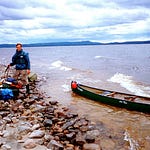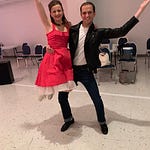
I came across an interesting idea from researcher Andy Matuschak recently, which is that "athletes and musicians pursue virtuosity in fundamental skills much more rigorously than knowledge workers do."
He goes on to say this about it (a few notes omitted for brevity, see link above for full text):
Top-tier athletes are fanatically disciplined about improving their foundational skills—skills which transcend any sport, the same kind of agility drills you might see an army recruit do. Top-tier musicians do likewise: Lang Lang, for instance, is still working on his scales after 30 years as a concert pianist. They’re not just doing rote drills: they’re working to improve those skills critically, poring over performance videos and working with coaches.
By comparison, Knowledge work rarely involves deliberate practice. Knowledge workers seem surprisingly unserious about honing fundamental skills like reading ..., note-taking ..., developing ideas over time ... I suspect this is in large part because the possibility of improvement isn't salient. ...
What might it mean for knowledge workers to fanatically pursue virtuosity in these fundamental skills, in the way that athletes seek in their fundamental skills?
(Note that Andy updates this note periodically, so this text may not match his current post exactly.)
If I frame practicing these fundamental knowledge work skills of writing, speaking, and developing ideas over time in terms of athletics, I think of a gym for knowledge work.
A mind gym.
This is my office that I walk into where I can repeat and develop fundamentals that are critical to my future success.
For writing, I can get my reps in by simply writing about a complex (for me) topic 30 minutes a day. If I wanted to max out, I could set aside time and not let anyone interrupt me. How would an athlete react if, mid-workout for their sport, a teammate walked in and said: "hey, can you stop mid-rep so I can talk to you for thirty minutes about this thing I'm curious about?" Athletes protect their workouts. Knowledge workers should protect time for honing their fundamentals.
Every post I publish is another rep for me and my writing. And I do strive for virtuosity in writing. Does it mean I'll get there? No, but it means I can get a tiny bit better with each repetition.
For speaking, I can sign up for a presentation, take a speaking course and record myself speaking at those engagements to provide myself with feedback. Each one is a rep.
For developing ideas over time, I have to capture my ideas somewhere that I can revisit them later. Every note I write down (I use roam research personally and this blog publicly), I can search and revisit my ideas later to consider how my views may have changed as I've developed.
Every year for the past six years I’ve written a reflection on the previous year and resolutions for the next year. I began this activity prior to six years ago, but only then did I start saving them somewhere I could revisit them. The tracking of the change over time is key. It’s fascinating to see how my priorities and goals have shifted as I’ve grown. Each year is a data point, but the several years in a row reveal a trajectory to you that’s difficult to see without that catalogue of past ambitions.
I want to be a knowledge worker who gets their reps in. Instead of only finding me pumping iron (I highly value physical workouts), you can find me clacking keys, composing essays to figure something out. My office is my mind gym and I want to get my reps in so that one day, maybe, I can be a virtuoso at the fundamentals of knowledge work.
What fundamentals do you want to develop and how do you plan to get your reps in? Let me know in the comments below.










